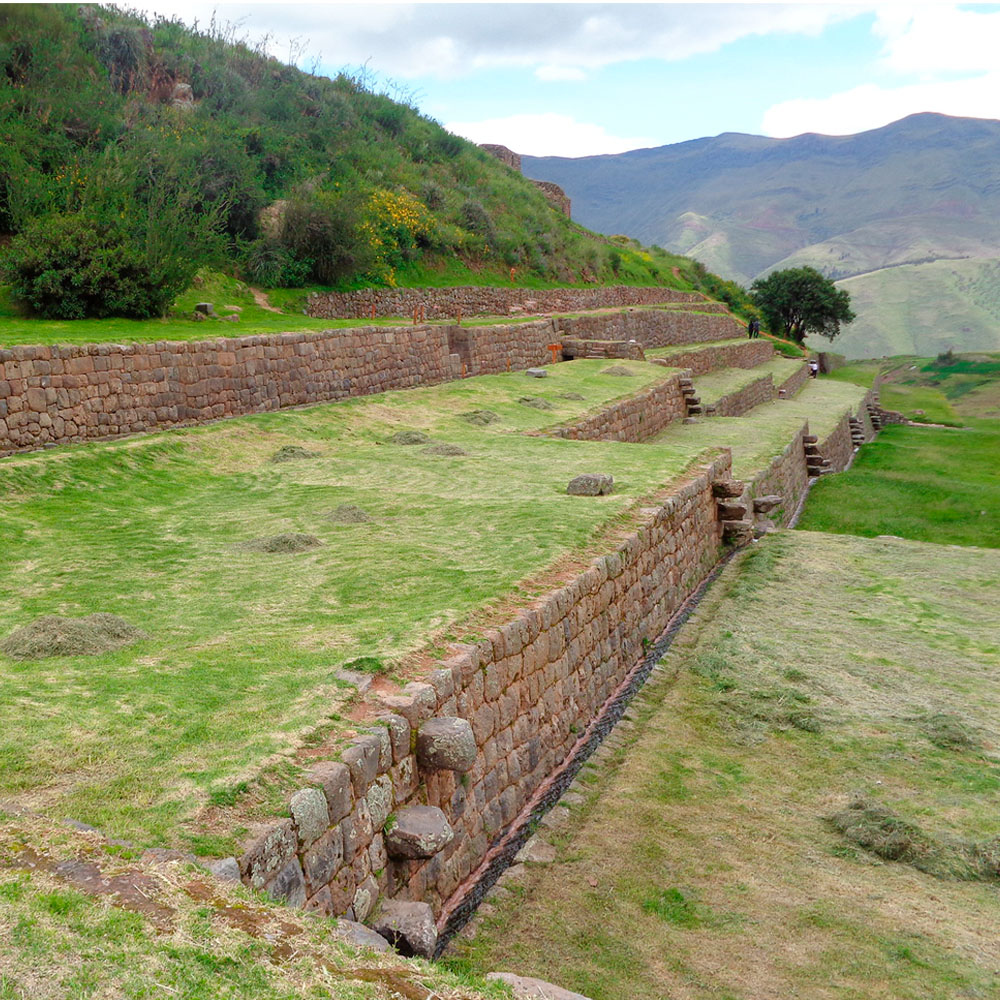

Tipón is home to an archaeological center known as the Temple of Water, famous for its interesting hydraulic systems, including agricultural terraces and water channels. In addition to these attractions, Tipón offers delicious local cuisine and has a small zoo with a variety of rescued animals.
According to historical references, the area where the Tipón archaeological complex is located was formerly occupied by the Incas. Wiracocha, after conquering the area, built the well-known archaeological center. Despite the passage of time, this place remains in good condition, especially its water conduits that are still functioning.
The district of Tipón is located about 24km southeast of the city of Cusco. The archaeological site is about 3km further, in the district of Oropesa, specifically in the Choquepata community. It is situated at an altitude of 3,560 meters.
Tipón offers a variety of attractions that you can visit, among the most notable are:
This archaeological park known as the "Temple of Water" is a major sanctuary where the Incas worshiped water, a sacred element for them, with the care and respect they attributed to it.
Due to the methodology used to transport water, it is considered a model of Inca hydraulic engineering.
In addition to the Temple of Water, there are other main sectors within the park to visit.
This is one of the most important constructions on the circuit. This house was ordered by Wiracocha for his father Yahuar Huaca and features rooms and gardens built with large stone blocks.
This complex has fountains and channels that still pour water today, which flows from underground channels.
It is built on a mountainous elevation from which almost all of Tipón can be observed, inside a room adorned with exquisite trapezoidal niches.
The minor enclosures are located 1km from the Intiwatana, these rooms show a lower quality compared to the royal enclosures, being initially built with stone and finished with adobe, indicating they were inhabited by people of lower rank.
The wall was possibly built for protection due to constant attacks from neighboring towns. This structure helped maintain the security of the archaeological complex and protect the sacred areas.
Also known as "Cruz moqo" meaning "summit where there is a cross" or "Qosqo qhawarina" meaning "viewpoint of Cusco," it is named so because from that point you can observe the city of Cusco.
It was a heavily populated area during the Inca era, home to personalities with extensive political and economic powers.
When visiting Tipón, you will find various countryside restaurants where you can enjoy delicious local cuisine. Among the standout dishes are roasted guinea pig, stuffed rocoto, and pork chicharrón, among other specialties.
This zoo is a refuge located in the same community as the archaeological park, so you will find it on the way to the archaeological site.
It houses a variety of Andean animals such as pumas, hawks, condors, snakes, alpacas, vicuñas, and deer, as well as jungle animals like spectacled bears, macaws, parrots, turtles, and others.
To get to Tipón, you can go on your own by taking a taxi or a public colectivo called "Los leones" from the city of Cusco, which will take you to the Tipón stop. From there, you can find other transport to take you to the archaeological center.
You can also choose to book our tour to the southern valley of Cusco for a more organized and enriching experience.
Monday to Sunday: 07:00 to 18:00 hours.
Entrance to the Tipón archaeological site is included in the Tourist Ticket.
Tipón has a temperate cold climate. To make the most of your visit, it is recommended to visit during the months from April to October, which correspond to the dry season, as this will allow you to enjoy its wonderful attractions.

Happy passengers